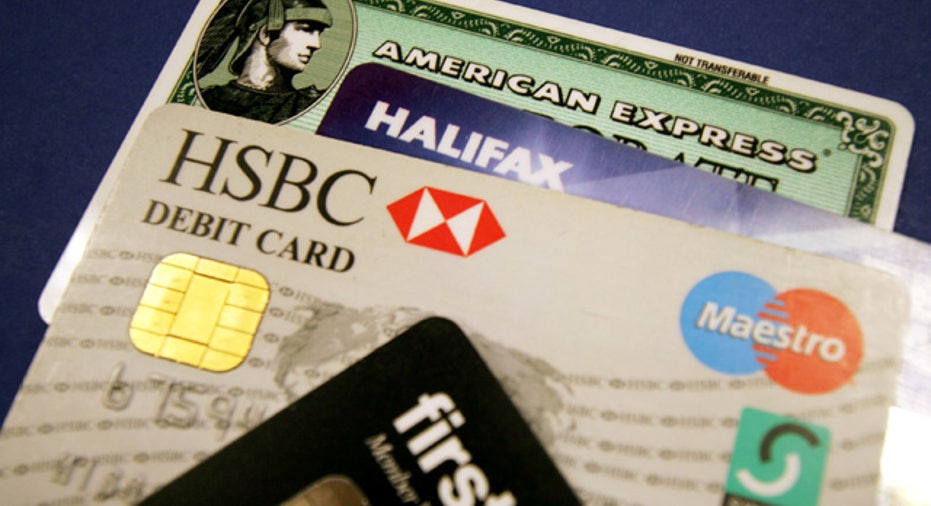No Longer Want to be an Authorized User? Just Ask

Dear Credit Score Report,
I just recently checked my credit score at Equifax and found something interesting on my credit report. Please advise me what I can do, since I'm not sure. I broke up with my ex-boyfriend three years ago. While we were dating, he had a credit card from Bank of America and added me as an authorized user. Somehow, I see that although his credit card is closed, that account is on my credit report. I feel it's not my responsibility. Is there a way I can remove that from my credit report? I had my friend email my ex-boyfriend, and my ex said he removed my name from the credit card a long time ago. So why is it still on my credit report? Is there something I can do about that? Can he write a letter to Equifax to state that I am not responsible for the remaining balance? Or can I dispute this credit report item? Looking forward of hearing from you soon. Thank you so much.
-Jenny
Hey Jenny,
Bank of America makes it easy to remove an authorized user from a credit card account, but that doesn't mean that card will automatically disappear from your credit report.
Your ex-boyfriend may have already removed you from that card account by calling or writing Bank of America. As an authorized user, you have that same power. "Authorized users can remove themselves from an account at any time," says BofA spokeswoman Betty Riess. You just need to contact the bank.
Getting removed from an ex's account -- especially one that has a balance remaining -- is probably a smart step. That's because, as an authorized user, even though you aren't responsible for repaying his debts, any borrowing mistakes on that account could appear on your credit report for a long time. Even closed accounts can remain on an authorized user's credit reports for up to 10 years. "It will continue to show as part of her credit history, but not as a current open account," BofA's Riess says.
So how do you make sure you've been removed from your ex's credit card? Contact BofA using their customer service phone number -- you can find it at BankofAmerica.com or on the card or any statements associated with this account -- and if it hasn't already done so, request that the bank take your name off that shared account.
Once you've made the call and the bank has fulfilled your request, the credit bureau should stop reporting new information associated with that account. "However, history reported to that point will be reflected on the consumer's credit file," says credit bureau Equifax spokeswoman Jennifer Costello. "In general, credit accounts paid as agreed remain on the credit file for up to 10 years from the date of last activity, and accounts not paid as agreed remain on file for seven years from the date of last activity," she says. However, Equifax adds that if a bank tells the bureau to delete the account completely, the account will be removed altogether from your report. Although Bank of America typically doesn't do that, other issuers may differ, so contact your card's issuer to find out more about its policy.
You'll also want to get copies of your credit reports from the other two bureaus, Experian and TransUnion, to make sure they've also stopped adding new information for that account.
Sound like too much trouble? If you were to remain an authorized user, any future mistakes made by your ex-boyfriend -- such as failing to pay on time or maxing out his account -- could show up on your credit report. That's why you need to make sure you've been removed from that card.
Getting your name off that account won't necessarily solve all your problems, however. Be aware that closing an account can impact your credit score. "If the Bank of America card is reported as closed on Jenny's credit report, its credit limit is not being factored into Jenny's credit utilization," says Barry Paperno, consumer operations manager at myFICO.com. In the calculation of your FICO credit score, a credit utilization ratio compares your credit lines to the amount of debt on those credit lines. That could mean closing an account makes it appear as if you have more debt relative to your credit lines, so be careful. "If the removal of the card's credit limit results in a higher overall credit utilization for Jenny, then it could lower Jenny's FICO score," Paperno says.
You can prevent this scoring damage by first paying all your other credit card account balances down to zero. Regardless of the original size of your credit lines, having an overall balance of zero dollars means your utilization ratio won't change even if your credit lines are then reduced. Zero divided by any number is always zero. That will protect your FICO score. If "the removal of the card's credit limit doesn't increase her overall credit utilization, then it should have little-to-no impact on Jenny's FICO score," Paperno says. Another strategy you could use to boost your available credit is to open a new credit card account.
By using these recommendations to protect yourself, even if the account continues to appear on your credit report, you can prevent any future blunders by your ex from leaving a stain on your credit history.
Good luck!
-Jeremy



















